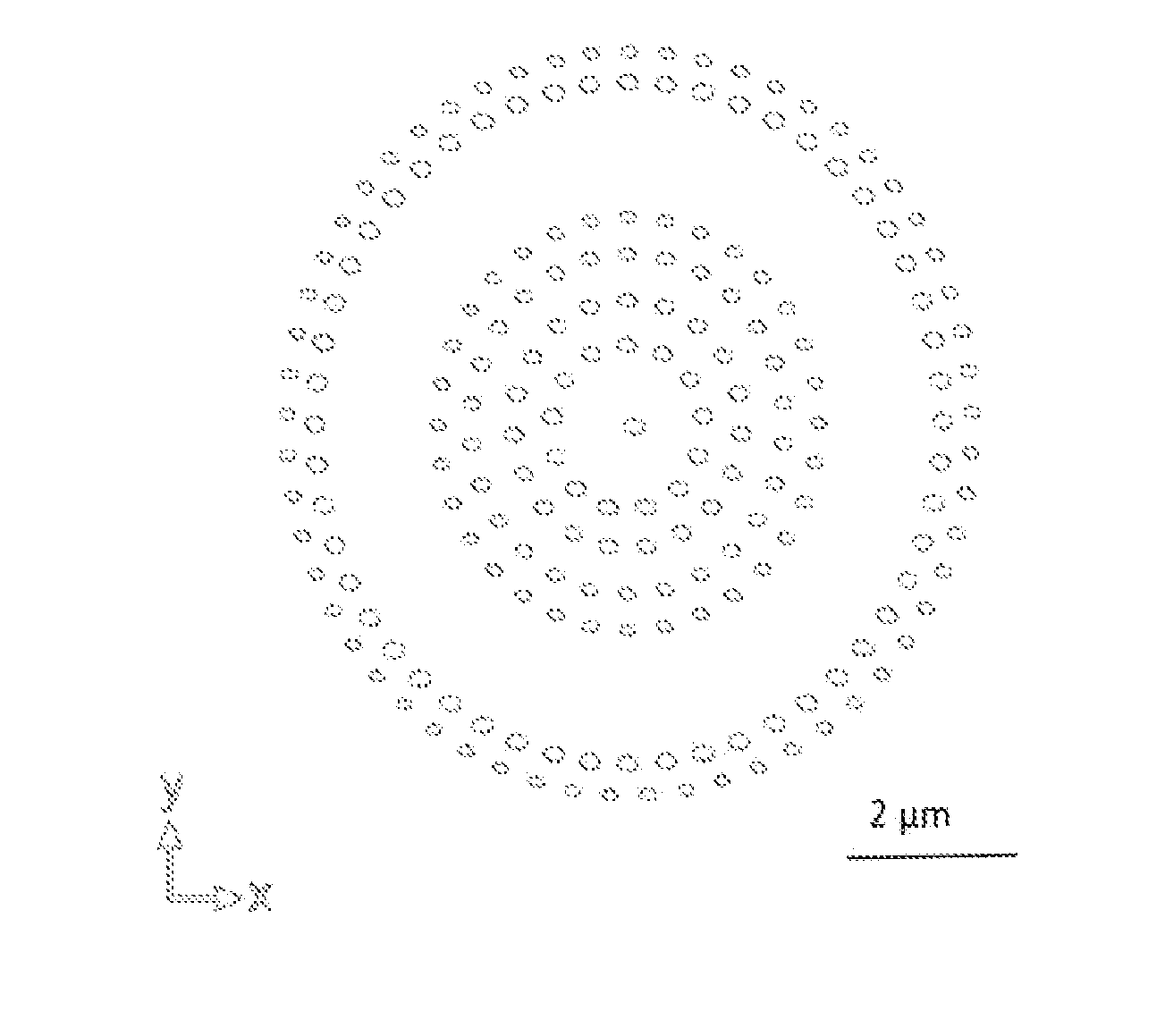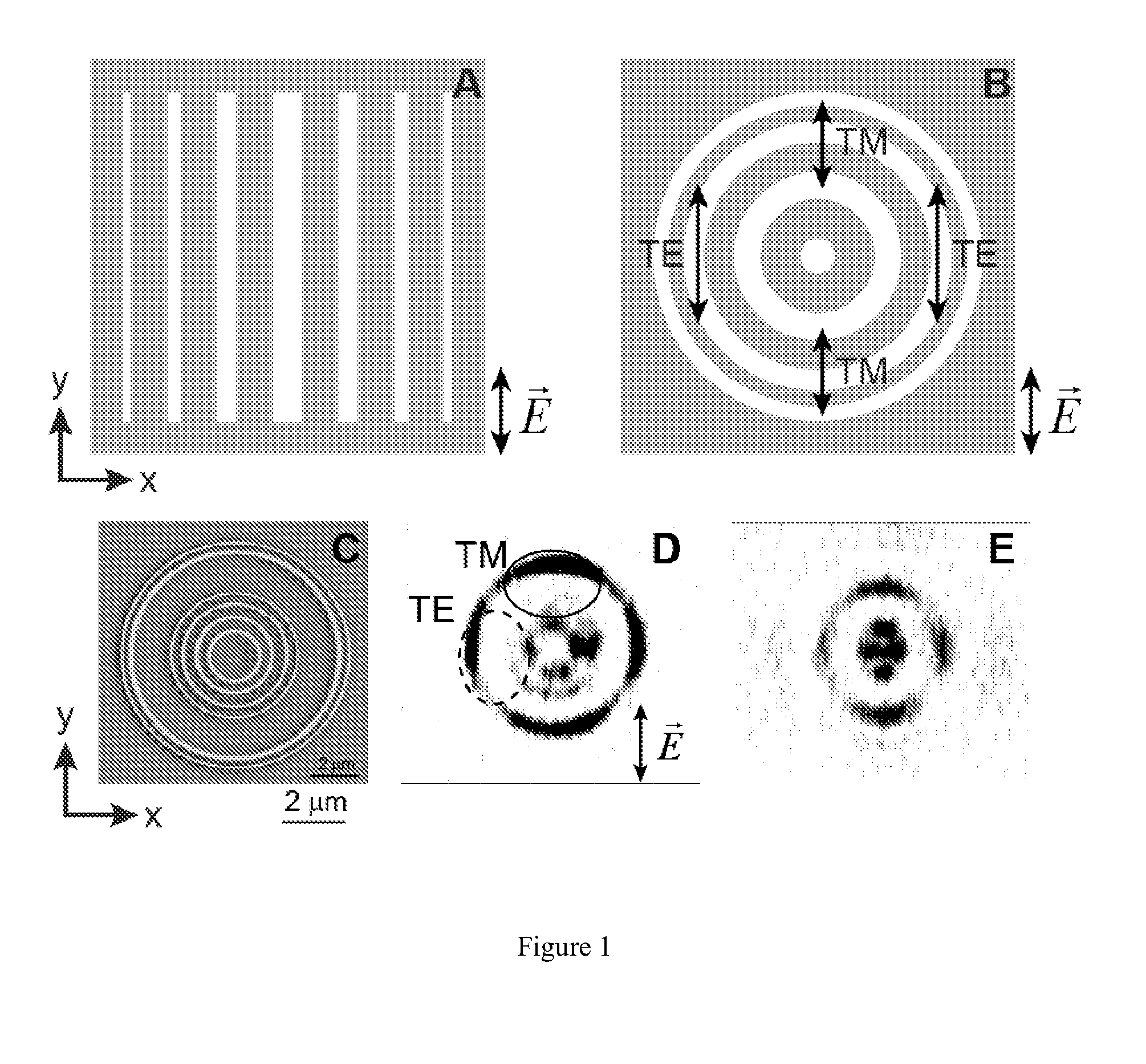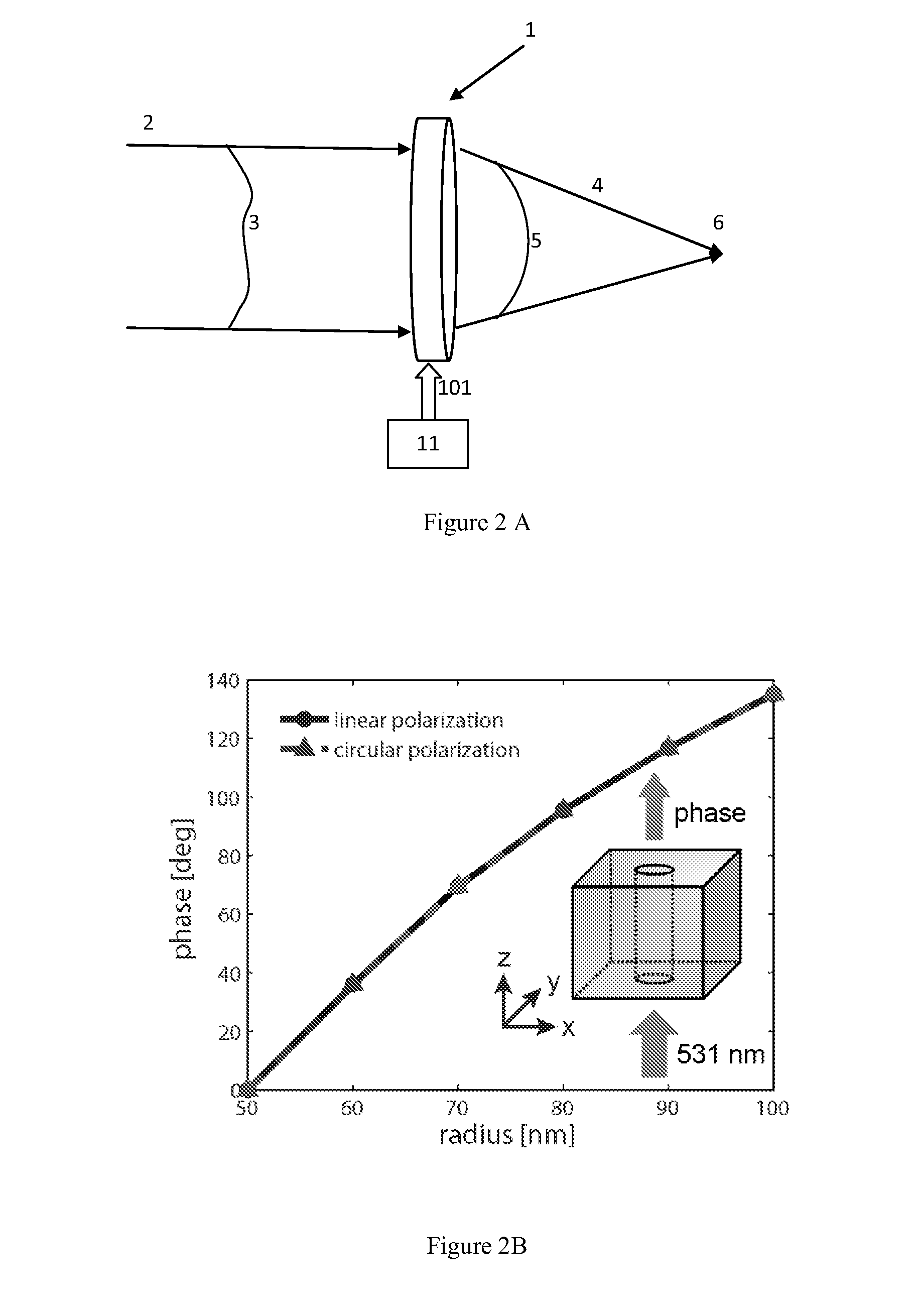Holey optical device
a technology of optical devices and holes, applied in the field of optical devices, can solve the problems of difficult fabrication process, tens of micrometer thickness, and non-uniform design of dielectric-based refraction microlenses typically used in optical systems, and achieve the effect of thin coating
- Summary
- Abstract
- Description
- Claims
- Application Information
AI Technical Summary
Benefits of technology
Problems solved by technology
Method used
Image
Examples
Embodiment Construction
[0022]A novel optical device with nanoslits or holes is disclosed. The holes are designed in the form of straight slits (defined as holes forming a rectangular or linear shape) or non-uniform circular slits (defined as holes forming shapes such as ellipses, ovals, elongated circles, or any other non-perfect round shape). In one embodiment of the present invention, a two-dimensional traditional nanoslit arrangement (See FIG. 1A) is further developed to create a circular format. Concentric nanoslits with different widths are arranged in a pattern similar to FIG. 1B and realized, according to one embodiment of the present invention, by milling into a thin metal film. In this embodiment, the optical device will cause arbitrary waveform formation to focus linearly polarized light into a smaller circular spot. For example, when x-polarized light is transmitted through the device, some areas of the circular slit perform as slit waveguides upon TM-excitation (where the E-field is parallel t...
PUM
| Property | Measurement | Unit |
|---|---|---|
| focal distance | aaaaa | aaaaa |
| refractive index | aaaaa | aaaaa |
| refractive index | aaaaa | aaaaa |
Abstract
Description
Claims
Application Information
 Login to View More
Login to View More - R&D
- Intellectual Property
- Life Sciences
- Materials
- Tech Scout
- Unparalleled Data Quality
- Higher Quality Content
- 60% Fewer Hallucinations
Browse by: Latest US Patents, China's latest patents, Technical Efficacy Thesaurus, Application Domain, Technology Topic, Popular Technical Reports.
© 2025 PatSnap. All rights reserved.Legal|Privacy policy|Modern Slavery Act Transparency Statement|Sitemap|About US| Contact US: help@patsnap.com



